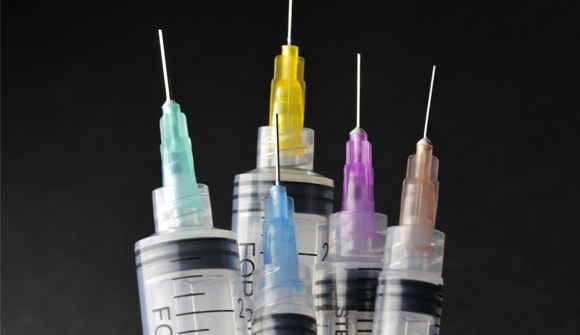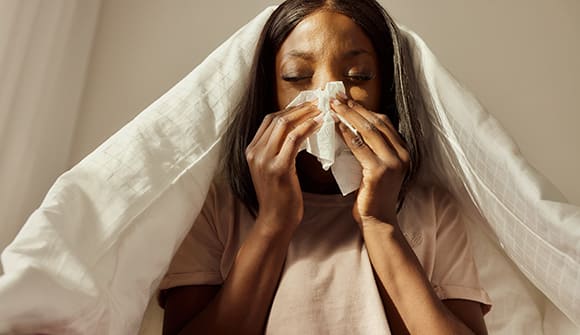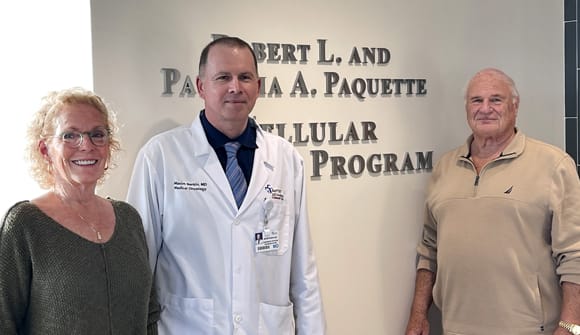Shot logic
Pediatrician says all vaccines are important.
Article Author: Johnny Woodhouse
Article Date:

Have you ever wondered why children in the United States are required to get so many vaccines? It’s for good reason.
By the time American children reach school age, they have likely received a handful of required shots, including ones for polio (IPV), chicken pox (varicella) and the combined measles, mumps and rubella (MMR) vaccine.
Do you really need them all? Are there any others parents should consider?
Mobeen Rathore, MD, chief of Infectious Diseases and Immunology at Wolfson Children’s Hospital, said all vaccines are important and it would be “dangerous to try and prioritize them.”
“It’s like asking me to pick who of my children I love more,” said Dr. Rathore, a pediatrician and pediatric infectious disease specialist for more than 30 years, and a subject matter expert for local, regional and national media on pediatric topics.
Instead, Dr. Rathore recommends at least 12 vaccines parents should consider getting for their kids and some for themselves. “Each of the vaccines has been carefully studied for safety and effectiveness and should be given as recommended by the Centers for Disease Control and Prevention (CDC).”
- IPV - The CDC recommends U.S. children get four doses of the inactivated polio vaccine (IPV) before the age of 6, especially if traveling to other countries. Routine polio vaccination is not recommended for adults who were vaccinated as children.
- DTaP - This vaccine can help protect children under the age of 7 from diphtheria, tetanus, and pertussis. A booster shot known as Tdap is given to adolescents and adults.
- Hib - This vaccine protects against meningitis. A series of shots is usually given at 2 months of age and completed at 12-15 months of age. Children 12-15 months and 5 years of age who have not previously been completely vaccinated against Hib may need 1 or more doses, according to the CDC.
- Pneumococcal - The vaccine protects against pneumococcal infections like meningitis, bacteremia and pneumonia, and sinus inflammation. Anyone can get these infections but children under 2, people with certain medical conditions, adults 65 or older, and cigarette smokers are at the highest risk.
- Hepatitis B - Commonly transmitted from mother to child during birth and delivery, this viral infection attacks the liver and can cause both acute and chronic diseases, including liver cancer. This vaccine protects against this serious health condition.
- Rotavirus - This is a contagious virus that can lead to severe diarrhea in infants and young children. It can also lead to dehydration
- MMR - The vaccine protects people against measles, mumps and rubella, and prevents the complications caused by these diseases.
- Varicella (chickenpox) - All healthy children ages 12 months to age 18 should have two doses of the chickenpox vaccination. This protection is especially important for people who cannot get vaccinated, such as children under 12 months of age, pregnant women and those with weakened immune systems.
- Meningococcal - This vaccine protects against five types of meningococcus and is recommended for ages 11-18.
- HPV - According to the CDC, about 14 million Americans become infected each year with the human papillomavirus virus (HPV), typically passed through genital contact. The HPV vaccine also protects against cervical cancer.
- Hepatitis A -This virus can cause acute liver disease. Symptoms can last from a few weeks to several months. It is commonly spread from person to person and outbreaks spread through person-to-person contact.
- Influenza - This every-year shot protects against three viruses and reduces the risk of flu illness and hospitalization among children and adults. The shot is especially important for people who are at high risk for influenza complications. Immunizing everyone (including pregnant women) over the age of 6 months protects those who cannot receive the vaccine because of age or medical conditions.
To find out which vaccines may be right for you or your family, talk to your primary care doctor or your child’s pediatrician. If you or your child needs a primary care provider, call 904.202.4968(4968).
Source: CDC Vaccines & Immunizations



